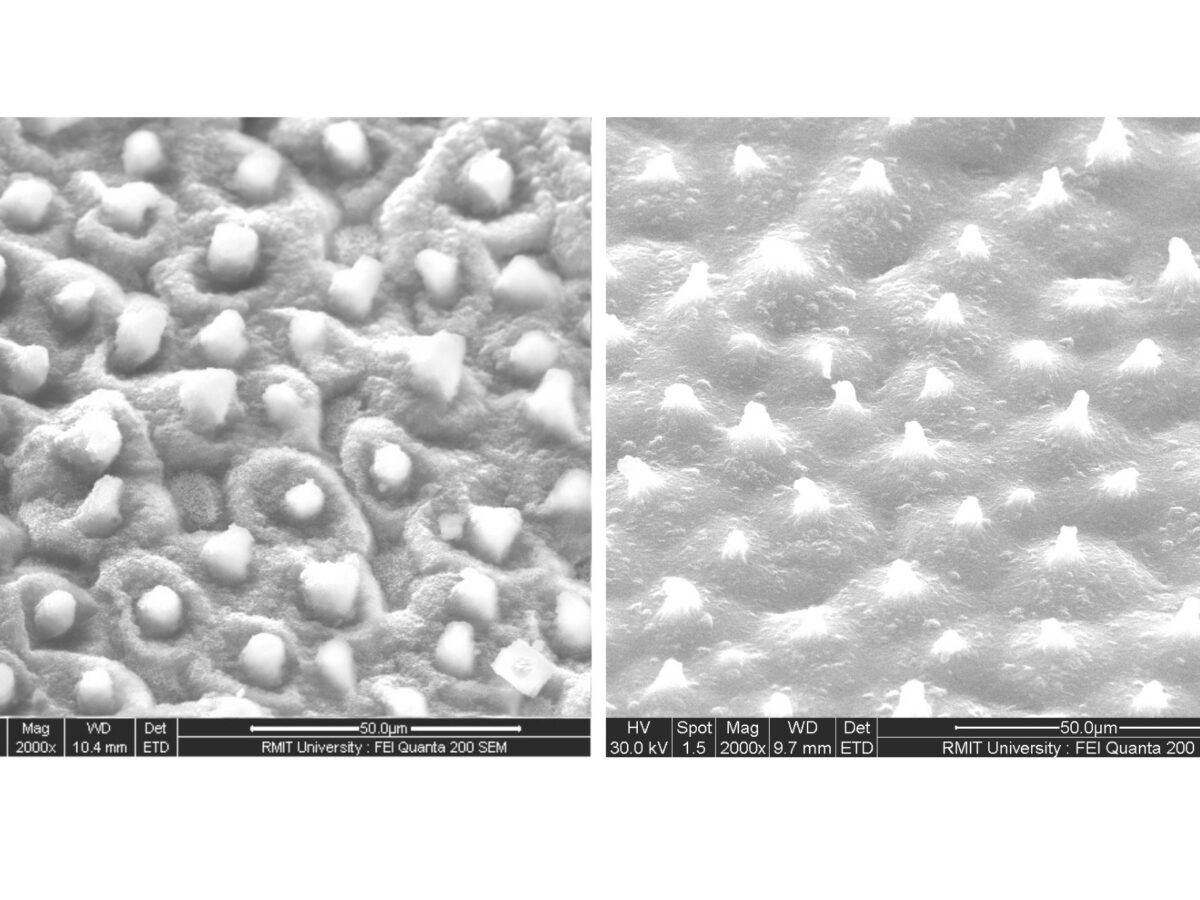New lotus-inspired bioplastic repels water and dirt, is ready for industrialisation: RMIT researchers

RMIT researchers have developed a new bioplastic, inspired by lotus leaves, which they say is compostable, strong, suitable for food packaging applications, as well as possible to produce in industrial volumes.
The material repels water and dirt, according to a statement from the university, and uses starch and cellulose as its base materials. (See video below.)
PhD researcher Mehran Ghasemlou said fabrication could be easily upscaled to roll-to-roll production, and did not require complicated machinery or heating. As well as this, it is compostable in soil.
“We carefully selected our raw materials for compostability and this is reflected in the results from our soil studies, where we can see our bioplastic rapidly breaks down simply with exposure to the bacteria and bugs in soil,” said Ghasemlou.
“Our ultimate aim is to deliver packaging that could be added to your backyard compost or thrown into a green bin alongside other organic waste, so that food waste can be composted together with the container it came in, to help prevent food contamination of recycling.”
Professor Benu Adhikari said the work overcame the natural fragility of starches, which often stood in their way of their promise.
“Through our bio-inspired engineering that mimics the ‘lotus effect’, we have delivered a highly-effective starch-based biodegradable plastic,” said Adhikari.
Research behind the new bioplastic's biodegradability and other physical properties has been published in the Science of the Total Environment and ACS Applied Materials and Interfaces journals.
Picture: The pillared structure of a lotus leaf (left) and the new bioplastic (right). Images magnified 2000 times. (Credit: RMIT University.)
Subscribe to our free @AuManufacturing newsletter here.
Topics Manufacturing News
@aumanufacturing Sections
Analysis and Commentary Awards casino reviews Defence Gambling Manufacturing News Online Casino Podcast Technology Videos

